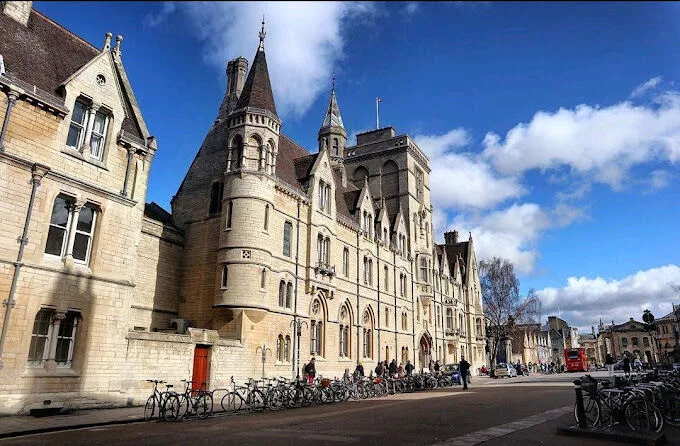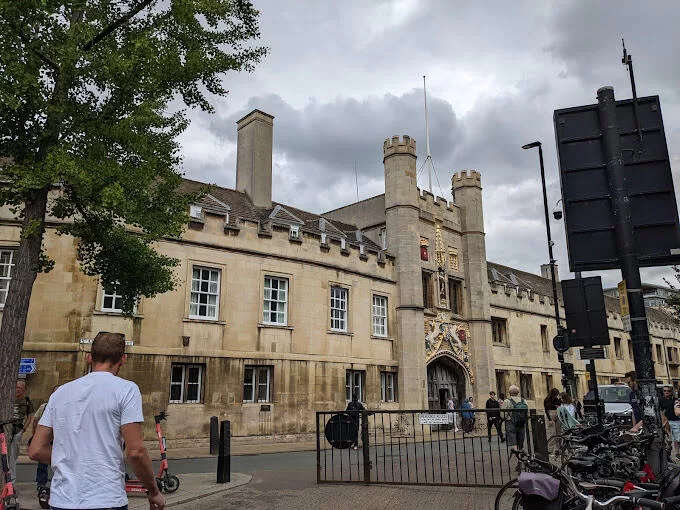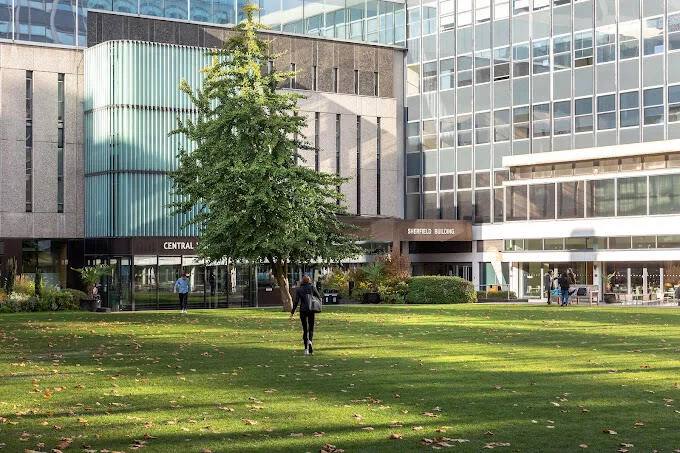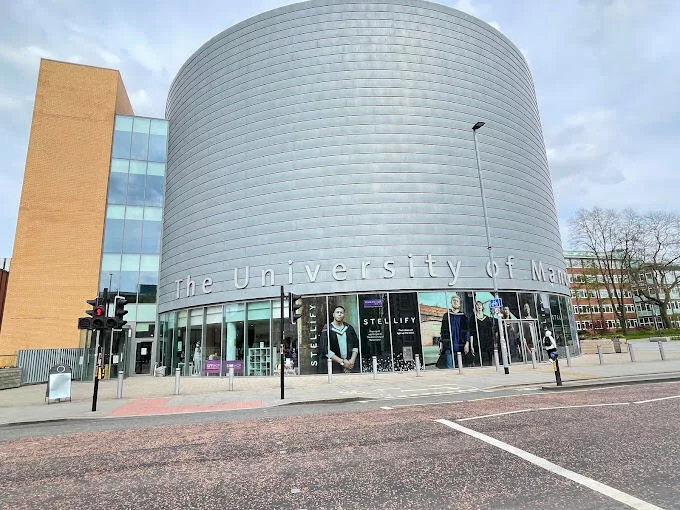Are you an aspiring doctor looking to study in the UK? With so many universities offering medicine courses, it can be overwhelming to choose the right one for you. But don’t worry, we’ve got you covered. In this guide, we’ll explore the top 10 best universities in the UK for Medicine, helping you make an informed decision on where to begin your journey towards becoming a doctor. Our approachable and encouraging tone aims to make learning about these prestigious universities accessible and engaging. We understand that the process of choosing a university can be daunting, which is why our clear and concise language breaks down complex concepts into manageable parts. So, let’s dive in and discover the best universities in the UK for Medicine!
Why Choosing the Right University Matters
Selecting the right institution from the best universities in the UK for Medicine is a crucial step for any aspiring doctor. This choice can profoundly influence your educational journey, career trajectory, and ultimately, your success in the medical field. The General Medical Council (GMC) accreditation is a testament to an institution’s commitment to maintaining high standards of education, safety, and professional conduct, making it a pivotal factor in your decision-making process. Each university offers a unique approach to teaching medicine, tailored curriculum, and a variety of specializations. Finding a program that aligns with your career goals and interests ensures that you are both engaged and motivated throughout your studies.
Moreover, the practical skills and clinical placements are indispensable components of your medical education. Universities that offer extensive clinical exposure through partnerships with a wide range of hospitals and diverse patient demographics prepare you for the realities of medical practice. This hands-on experience is vital for developing a comprehensive skill set and a deep understanding of patient care. Additionally, the faculty’s expertise and the opportunities for student engagement in research projects can enrich your learning experience. Building relationships with esteemed faculty members can open doors to mentorship, networking, and collaborative research endeavors. Engaging in research during medical school not only enhances your academic profile but also allows you to contribute to meaningful advancements in medicine. In essence, your choice of university shapes your path in the medical profession. It’s about finding a place where the curriculum, clinical training, faculty, and research opportunities come together to provide a holistic and enriching educational experience. By considering these factors carefully, you can select a university that not only meets the highest standards of medical education but also supports your aspirations and fosters your growth as a future healthcare leader.
Methodology and Metrics Used
To determine the top universities in the UK for Medicine, a comprehensive methodology incorporating various metrics was utilized. These metrics were selected to ensure that the institutions not only offer exceptional educational quality but also provide a conducive environment for aspiring doctors to thrive and grow. Here’s a closer look at the methodology and metrics used:
1. Quality of Teaching: This metric evaluates the universities’ commitment to delivering high-standard medical education, including the effectiveness of teaching methodologies and the faculty-to-student ratio. It considers how these institutions prepare students with the foundational knowledge and critical thinking skills essential in the medical field.
2. Research Output and Impact: Recognizing the importance of innovation in healthcare, this metric examines the volume, quality, and influence of medical research conducted by the universities. Institutions with high research output and impact contribute significantly to the advancement of medical science and patient care.
3. Clinical Training Opportunities: Practical experience is pivotal in medical education. This metric assesses the availability and diversity of clinical placements offered, including partnerships with leading hospitals and healthcare facilities. It ensures that students gain hands-on experience in a real-world setting, essential for honing their clinical skills.
4. Student Satisfaction: The overall student experience is a crucial factor in this evaluation. This metric looks at how satisfied students are with their course, resources available, support from the university, and their personal development throughout their studies.
5. Graduate Employability: The ability of graduates to secure relevant and fulfilling positions in the medical field post-graduation indicates the effectiveness of the university’s education. This metric considers the employability rate of alumni, reflecting the institution’s reputation and the quality of its training.
6. Proximity to Leading Hospitals and Research Centers: Being close to top healthcare and research facilities enhances learning opportunities and allows for a seamless integration of theoretical knowledge with clinical practice.
7. Local Reputation in the Medical Community: The standing of a university within the local medical community can provide insights into the quality and relevance of its medical program. It reflects the institution’s ability to meet the needs of healthcare professionals and the respect it commands among peers.
Top 10 Universities for Medicine in the UK (2024)
University of Oxford

At the pinnacle of medical education in the UK sits the University of Oxford, consistently ranked among the best universities in the UK for Medicine. Oxford’s rich history and legacy in medical education stretch back centuries, offering a depth of knowledge and a tradition of excellence that is unparalleled. The program here is designed to not only educate but to inspire the next generation of medical professionals, with a course structure that spans six years, integrating pre-clinical and clinical studies in a seamless journey toward medical mastery. One of the unique features and strengths of Oxford’s medical program is its tutorial system, which allows students to engage in small group discussions with world-leading experts, fostering a deeply personal and intellectually stimulating learning environment. This approach encourages critical thinking and a deeper understanding of medical science, setting Oxford apart from other institutions.
The curriculum at Oxford is meticulously crafted, beginning with three years of pre-clinical training that provides a comprehensive foundation in medical science, followed by three years of clinical placements. These placements are conducted at Oxford’s network of affiliated teaching hospitals, offering students a diverse range of experiences in patient care across various medical specialties. Key facilities and resources at Oxford include state-of-the-art research laboratories, extensive medical libraries, and access to cutting-edge medical technologies. These resources enable students to immerse themselves in research and clinical practice, preparing them for a future at the forefront of medical innovation. Oxford’s notable alumni and achievements in the field of medicine underscore its status as a leader in medical education and research. From pioneering work in penicillin to groundbreaking advancements in genetics, Oxford has been at the heart of medical breakthroughs that have shaped modern healthcare. Students at Oxford are walking in the footsteps of giants, poised to contribute their own chapters to this illustrious legacy.
Metrics Evaluation:
-
Quality of Teaching (Rating: 5/5)
Oxford’s teaching quality is exceptional, characterized by leading experts and innovative teaching methods. -
Research Output and Impact (Rating: 5/5)
The university excels in research, with a prolific output and significant impact on medical advancements worldwide. -
Clinical Training Opportunities (Rating: 5/5)
Students benefit from extensive clinical training opportunities at affiliated hospitals renowned for their excellence. -
Student Satisfaction (Rating: 5/5)
High levels of student satisfaction due to robust support services, a stimulating academic environment, and vibrant student life. -
Graduate Employability (Rating: 5/5)
Graduates enjoy exceptional employability, with high rates of employment and relevant career support. -
Proximity to Leading Hospitals and Research Centers (Rating: 5/5)
Oxford is strategically located near leading hospitals and research centers, enhancing practical training and research collaborations. -
Local Reputation in the Medical Community (Rating: 5/5)
Oxford enjoys an outstanding reputation within the medical community, recognized for its contributions and collaborations.
Overall Rating: 5/5
University of Cambridge

The University of Cambridge, one of the best universities in the UK for Medicine, has a storied legacy of advancing medical science and educating some of the world’s most esteemed physicians and researchers. This institution, renowned for its rigorous academic standards and commitment to excellence, provides a rich and comprehensive program that prepares students to lead and innovate in the medical field. Cambridge’s medical program is distinct for its blend of traditional learning with cutting-edge research and clinical practice. The course, typically spanning six years, is meticulously structured to ensure a thorough understanding of medical science before transitioning to practical, patient-focused training. This ensures that graduates are not only knowledgeable but also highly skilled in applying their learning to real-world situations. Among its unique features, Cambridge offers its students unparalleled access to world-class facilities and resources.
This includes state-of-the-art laboratories, extensive medical and research libraries, and connections to several leading hospitals and research institutions. Such resources provide a fertile ground for discovery and learning, enabling students to dive deep into their areas of interest. Cambridge’s strengths lie in its ability to foster an environment of intense intellectual engagement, critical thinking, and innovation. The college tutorial system, a hallmark of Cambridge’s educational approach, allows for personalized instruction and mentorship, enabling students to explore complex medical concepts and challenges in depth with leading experts in their fields. Notably, Cambridge’s list of alumni and achievements in medicine underscores its role as a beacon of medical education and research. Its alumni have been at the forefront of numerous medical breakthroughs, contributing significantly to the advancement of global health. These accomplishments speak to the quality of education and the level of opportunity available to Cambridge students, positioning them to continue this legacy of excellence and impact in the medical profession.
Metrics Evaluation:
-
Quality of Teaching (Rating: 5/5)
Cambridge excels in teaching quality with highly qualified faculty renowned for their expertise. The curriculum is cutting-edge, integrating traditional and innovative teaching methods. -
Research Output and Impact (Rating: 5/5)
Cambridge leads in medical research with numerous high-impact publications. Its research is transformative, influencing global medical practices and advancements. -
Clinical Training Opportunities (Rating: 5/5)
Students benefit from extensive clinical training at prestigious hospitals affiliated with Cambridge. The hands-on experience is comprehensive, preparing graduates effectively. -
Student Satisfaction (Rating: 5/5)
Cambridge receives exceptional feedback from students. Support services are outstanding, fostering a positive academic environment and vibrant student life. -
Graduate Employability (Rating: 5/5)
Graduates from Cambridge are highly sought after, with excellent employment rates and job relevance. Career support services are robust, ensuring successful transitions into the workforce. -
Proximity to Leading Hospitals and Research Centers (Rating: 5/5)
Situated in Cambridge, the university enjoys close proximity to renowned hospitals and research centers. This facilitates significant interaction and extensive opportunities for clinical training and research. -
Local Reputation in the Medical Community (Rating: 5/5)
Cambridge holds an excellent reputation within the medical community. It is highly recognized and respected by local healthcare providers, professionals, and organizations.
Overall Rating: 5/5
University College London (UCL):

UCL (University College London) distinguishes itself among the best universities in the UK for Medicine with its rich heritage in pioneering medical education and research. Offering an innovative program that emphasizes a holistic understanding of health and disease, UCL prepares its students for a future at the forefront of the medical profession. The medical degree at UCL spans six years, integrating biomedical science with clinical training from the very outset, ensuring that students develop a deep understanding of the scientific basis of medicine alongside practical skills. One of the unique features of UCL’s medical program is its emphasis on patient and population health right from the start. This approach allows students to appreciate the context of the conditions they will treat, fostering a deeper sense of empathy and a patient-centered approach to medicine. Furthermore, the program’s later years offer students the opportunity to specialize in areas of interest, providing a tailored education that aligns with their career aspirations.
UCL boasts state-of-the-art facilities, including the UCL Medical School’s clinical skills center and the Bloomsbury campus’s extensive biomedical library, equipping students with the resources they need to excel. Cutting-edge research opportunities are abundant, thanks to UCL’s close ties with several major hospitals in London and its leading position in global medical research. The university’s impressive list of alumni, including Nobel laureates and pioneers in various medical fields, underscores UCL’s role in shaping leaders who push the boundaries of what’s possible in healthcare. Graduates of UCL’s medical program leave with not just a degree, but a rich, comprehensive education that prepares them to make significant contributions to the medical community and beyond, embodying the innovative spirit that UCL fosters in its students.
Metrics Evaluation
- Quality of Teaching (Rating: 4/5)
UCL boasts highly qualified faculty members with substantial experience. The curriculum is up-to-date, integrating both traditional and innovative teaching methods to enhance learning. - Research Output and Impact (Rating: 5/5)
UCL is renowned for its prolific research output, contributing significantly to advancements in medical science. The university’s research has a transformative impact on the medical field globally. - Clinical Training Opportunities (Rating: 4/5)
Students benefit from extensive clinical training opportunities at UCL, particularly at renowned hospitals like the Royal Free and Whittington Hospitals in London. These placements provide valuable hands-on experience. - Student Satisfaction (Rating: 4/5)
Overall, students at UCL report high satisfaction levels due to good support services, a positive academic environment, and vibrant student life. - Graduate Employability (Rating: 5/5)
Graduates from UCL’s medical programs enjoy excellent employability prospects, with high employment rates and strong career support services. - Proximity to Leading Hospitals and Research Centers (Rating: 5/5)
Located in London, UCL benefits from close proximity to major hospitals and research centers. This enhances opportunities for clinical practice and research collaborations. - Local Reputation in the Medical Community (Rating: 5/5)
UCL holds an outstanding reputation within the local medical community, recognized for producing top-tier medical professionals and contributing significantly to healthcare advancements.
Overall Rating: 4.5/5
Imperial College London

Imperial College London is renowned for its fusion of science, technology, and medicine, earning its place among the best universities in the UK for Medicine. The institution’s history of excellence in medical education and research sets a dynamic foundation for students, where innovation and healthcare converge to prepare the next generation of medical leaders. The medical program at Imperial is designed to challenge and inspire, with a curriculum that is constantly evolving to incorporate the latest scientific and technological advancements. Its duration of six years allows for a deep dive into both the theoretical underpinnings of medicine and the practical application of these principles in clinical settings. Imperial’s unique features include its integrated approach to learning, combining traditional medical education with opportunities to explore the latest in medical research and technology. This blend ensures that students are not only proficient in clinical practice but are also equipped to contribute to the medical innovations of the future.
The course structure is meticulously organized, beginning with years focused on the scientific basis of medicine, followed by intensive clinical placements that provide students with hands-on experience in a variety of healthcare environments. Key facilities and resources at Imperial include cutting-edge research laboratories, digital health technology suites, and one of the largest medical libraries in Europe. These resources support a rich learning environment where students can immerse themselves in discovery and innovation. Notable alumni and achievements of Imperial College London highlight its impact on the medical field. Graduates have gone on to lead major healthcare reforms, develop revolutionary medical technologies, and make significant research contributions that have advanced global health. This legacy of excellence underscores the transformative education and opportunities available at Imperial, making it a cornerstone for those who aspire to be at the forefront of medical science and practice.
Metrics Evaluation:
-
Quality of Teaching (Rating: 4/5)
Imperial College London boasts highly qualified faculty who are experts in their fields. Teaching methods are innovative, combining traditional lectures with practical, hands-on learning experiences. -
Research Output and Impact (Rating: 5/5)
The college excels in medical research, consistently producing a high volume of impactful publications. Its research contributes significantly to advancing medical knowledge and practice globally. -
Clinical Training Opportunities (Rating: 4/5)
Imperial College London offers extensive clinical training opportunities through partnerships with top hospitals in London. Students gain valuable hands-on experience in diverse clinical settings. -
Student Satisfaction (Rating: 4/5)
Students report high satisfaction with the academic environment, support services, and overall student life at Imperial College London. The university fosters a supportive and stimulating learning environment. -
Graduate Employability (Rating: 5/5)
- Graduates from Imperial College London are highly sought after by employers globally. The university’s strong reputation and rigorous training ensure excellent job prospects and career opportunities.
-
Proximity to Leading Hospitals and Research Centers (Rating: 5/5)
Situated in London, Imperial College has close proximity to leading hospitals and research centers such as Imperial College Healthcare NHS Trust and other renowned medical institutions. -
Local Reputation in the Medical Community (Rating: 5/5)
Imperial College London enjoys an outstanding reputation within the medical community in London and beyond. It is highly respected for its contributions to healthcare and medical research.
Overall Rating: 4.5/5
University of Glasgow

The University of Glasgow stands proudly among the best universities in the UK for Medicine, boasting a remarkable history and a steadfast commitment to medical education and research. This storied institution, founded in 1451, has been a bastion of medical innovation and learning, continually adapting to meet the evolving needs of healthcare. The medical program at Glasgow is meticulously designed to offer a balanced and immersive educational experience, preparing students to excel in the fast-paced and complex world of medicine. Spanning six years, the program combines foundational medical sciences with extensive clinical training, ensuring students are well-equipped to tackle the challenges of modern medical practice. One of the distinguishing features of the University of Newport is its integrated curriculum, which emphasizes the importance of inter-professional education and early patient contact.
This approach allows students to develop a holistic understanding of patient care from the outset of their studies. Furthermore, the program encourages students to engage in research, equipping them with the critical thinking and analytical skills necessary for innovation in medicine. The University of Glasgow is home to some of the UK’s leading medical facilities, including the state-of-the-art Teaching and Learning Centre located at the Queen Elizabeth University Hospital. These resources, coupled with a network of affiliated teaching hospitals, provide students with unparalleled opportunities to gain hands-on experience in a variety of medical specialties. Glasgow’s alumni network is a testament to the university’s legacy of excellence in medical education. Graduates have made significant contributions to medicine and healthcare, from groundbreaking research to leadership roles in healthcare policy and practice. This legacy of achievement underlines the University of Glasgow’s role in shaping the future of medicine, making it a premier choice for aspiring doctors dedicated to making a difference in the world.
Metrics Evaluation
- Quality of Teaching (Rating: 4/5)
The University of Glasgow boasts highly qualified faculty members who are experts in their fields. Teaching methods blend traditional lectures with innovative approaches, ensuring a comprehensive learning experience. - Research Output and Impact (Rating: 5/5)
Renowned for its significant contributions to medical research, Glasgow consistently produces high-quality publications and innovations that impact global healthcare. The university maintains strong collaborations with leading research institutions. - Clinical Training Opportunities (Rating: 4/5)
Students benefit from extensive clinical training opportunities through partnerships with prominent hospitals and medical centers in Glasgow. These placements provide hands-on experience in diverse medical specialties. - Student Satisfaction (Rating: 4/5)
The university prioritizes student support services, fostering a supportive academic environment. Students report high satisfaction with the quality of education, facilities, and overall student life experience. - Graduate Employability (Rating: 5/5)
Graduates from the University of Glasgow are highly sought after in the medical field, with excellent job placement rates and relevant career support services. The university’s strong reputation enhances graduates’ employability globally. - Proximity to Leading Hospitals and Research Centers (Rating: 5/5)
Situated in Glasgow, a hub for healthcare in Scotland, the university benefits from close proximity to leading hospitals and research centers. This enhances opportunities for clinical practice, research collaborations, and networking. - Local Reputation in the Medical Community (Rating: 4/5)
The University of Glasgow enjoys a strong local reputation among healthcare providers and professionals. It is highly respected for producing skilled medical professionals and conducting impactful research.
Overall Rating: 4.5/5
University of Edinburgh

The University of Edinburgh, a jewel in the crown of Scottish education, is revered among the best universities in the UK for Medicine. Boasting a storied history that traces back to 1582, Edinburgh has long been at the forefront of medical education and research, nurturing minds that have pioneered some of healthcare’s most significant advancements. The medical program at the University of Edinburgh is designed with an emphasis on preparing students for the complexities and challenges of modern medicine. With a curriculum that spans six years, students embark on a journey that not only imparts rigorous academic knowledge but also instills a profound understanding of patient care and medical ethics. One of Edinburgh’s unique features is its integration of biomedical sciences with clinical experience right from the early years, offering a balanced and comprehensive approach to medical education.
This, coupled with the opportunity to conduct research alongside world-renowned scientists, ensures that students are well-prepared to lead the next wave of medical innovation. The University’s medical facilities are among the best-equipped in the country, featuring state-of-the-art research labs, teaching hospitals, and the Royal Infirmary of Edinburgh, a leading center for patient care and clinical research. These resources provide an unparalleled environment for students to hone their skills and apply their knowledge in real-world settings. Edinburgh’s legacy is cemented by its roster of notable alumni, including pioneers who have shaped global health landscapes through their contributions to medical science and practice. Graduates leave Edinburgh with more than a degree; they carry forward a tradition of excellence and a commitment to improving human health across the globe.
Metrics Evaluation:
-
Quality of Teaching (Rating: 4/5)
Edinburgh boasts highly qualified faculty who employ innovative teaching methods. The curriculum is updated regularly to reflect current medical practices. -
Research Output and Impact (Rating: 5/5)
The university is a leader in medical research with numerous impactful publications. Research at Edinburgh has significantly advanced medical knowledge. -
Clinical Training Opportunities (Rating: 5/5)
Students benefit from extensive clinical placements in Edinburgh’s prestigious hospitals. Hands-on experience is emphasized throughout the medical program. -
Student Satisfaction (Rating: 4/5)
Students report high satisfaction due to supportive services and a vibrant academic environment. The university provides ample opportunities for extracurricular activities. -
Graduate Employability (Rating: 5/5)
Graduates are highly sought after, with strong employment rates and relevant job placements. Career support services are robust, enhancing graduate employability. -
Proximity to Leading Hospitals and Research Centers (Rating: 5/5)
Edinburgh’s central location offers close proximity to leading hospitals and research institutions. Students benefit from collaborative opportunities and easy access to medical facilities. -
Local Reputation in the Medical Community (Rating: 5/5)
The university enjoys an excellent reputation among local healthcare providers and professionals. It is respected for producing skilled graduates and impactful research.
Overall Rating: 5/5
University of Bristol

The University of Bristol, a distinguished name among the best universities in the UK for Medicine, boasts a prestigious history and legacy of medical education and research. With a commitment to fostering the next generation of medical professionals, Bristol provides an innovative and comprehensive medical program that is designed to challenge, inspire, and prepare students for a dynamic healthcare landscape. This esteemed institution offers a medical program that spans six years, thoughtfully blending rigorous academic learning with practical clinical experience. From the outset, students are immersed in a curriculum that lays a solid foundation in the biomedical sciences, followed by extensive clinical training that ensures graduates are well-versed in addressing the complexities of patient care. One of Bristol’s unique features is its emphasis on research-led teaching, which allows students to engage with cutting-edge medical research and technological advancements. This approach not only enriches the learning experience but also encourages students to contribute to the advancement of medical science.
Bristol’s course structure fosters an environment of continuous learning and curiosity, crucial traits for any aspiring doctor. Key facilities and resources at the University of Bristol include modern laboratories, clinical simulation suites, and one of the UK’s leading medical libraries. These assets provide an exceptional learning environment that supports students in achieving their academic and professional goals. The University of Bristol’s notable alumni and achievements in the medical field underscore its impact and leadership in healthcare education and research. Graduates have gone on to lead influential careers in various medical specialties, contributing significantly to medical innovations and patient care across the globe. This legacy of excellence highlights Bristol’s role in shaping proficient, compassionate, and innovative medical professionals ready to make meaningful contributions to the health and well-being of societies worldwide.
Metrics Evaluation
- Quality of Teaching (Rating: 4/5)
The University of Bristol is renowned for its high-quality teaching, supported by experienced faculty and innovative teaching methods. Students benefit from a curriculum that integrates theoretical knowledge with practical skills, preparing them well for clinical practice. - Research Output and Impact (Rating: 5/5)
Bristol excels in research output and impact, contributing significantly to medical advancements globally. Its research is highly regarded, with numerous publications and impactful studies that influence healthcare practices. - Clinical Training Opportunities (Rating: 4/5)
Students at Bristol have access to excellent clinical training opportunities, facilitated by partnerships with leading hospitals and healthcare institutions in Bristol and beyond. This hands-on experience enhances practical skills and prepares graduates for diverse medical careers. - Student Satisfaction (Rating: 4/5)
The university receives high satisfaction ratings from students, who appreciate the supportive academic environment, comprehensive support services, and vibrant student life. Bristol offers a conducive atmosphere for personal and professional development. - Graduate Employability (Rating: 5/5)
Bristol graduates enjoy exceptional employability prospects, with high employment rates in relevant medical fields. The university’s strong reputation and robust career support services contribute to successful career placements. - Proximity to Leading Hospitals and Research Centers (Rating: 5/5)
Located in Bristol, the university benefits from close proximity to major hospitals and research centers. This proximity enhances clinical training opportunities and facilitates collaborative research initiatives, enriching the student experience. - Local Reputation in the Medical Community (Rating: 5/5)
Bristol maintains an excellent reputation within the local medical community, recognized for producing skilled healthcare professionals and contributing to healthcare innovation. Its graduates are highly respected among healthcare providers.
Overall Rating: 4.5/5
King’s College London

King’s College London is celebrated for its distinctive blend of tradition and forward-thinking in medical education, establishing its position among the best universities in the UK for Medicine. This institution prides itself on a history that is deeply interwoven with the advancements in healthcare and medical education, contributing significantly to the field through its alumni and research achievements. The medical program at King’s is designed to equip students with both the theoretical knowledge and the practical skills necessary for a successful career in medicine. A standout feature of King’s College London is its comprehensive approach to medical training, which balances rigorous academic study with extensive clinical practice. The program is structured to span six years, during which students transition from foundational medical sciences to specialized clinical placements. This progression ensures that graduates emerge as well-rounded professionals, ready to meet the diverse needs of their patients.
King’s boasts an array of key facilities and resources that enhance the learning experience, including modern research laboratories, simulation suites, and one of the UK’s leading medical libraries. These resources, coupled with the college’s central London location, provide students with unparalleled opportunities to engage with cutting-edge medical research and clinical practice. The alumni network of King’s College London speaks volumes about its legacy and impact on the medical world. Graduates of King’s have gone on to pioneer new treatments, lead public health initiatives, and make significant contributions to medical science. Their achievements not only highlight the quality of education at King’s but also its role in shaping healthcare leaders who are equipped to address the challenges of modern medicine with innovation and compassion.
Metrics Evaluation:
-
Quality of Teaching (Rating: 4/5)
King’s College London boasts highly qualified faculty known for their expertise. The curriculum integrates modern teaching methods with traditional approaches. -
Research Output and Impact (Rating: 5/5)
King’s College London is a leader in medical research with a substantial impact. The university contributes significantly to advancements in various medical fields. -
Clinical Training Opportunities (Rating: 4/5)
Students benefit from extensive clinical placements at renowned hospitals. Practical training is robust, enhancing hands-on experience and skill development. -
Student Satisfaction (Rating: 4/5)
High levels of student satisfaction are reported due to strong support services. The academic environment and student life are rated positively. -
Graduate Employability (Rating: 5/5)
King’s College London graduates enjoy high employability rates. Career support services are comprehensive, facilitating smooth transitions into careers. -
Proximity to Leading Hospitals and Research Centers (Rating: 5/5)
Situated in London, King’s College London offers close proximity to top hospitals and research institutions. This enhances opportunities for clinical training and research collaborations. -
Local Reputation in the Medical Community (Rating: 5/5)
King’s College London has an excellent reputation within the local medical community. It is highly recognized and respected by healthcare providers and professionals.
Overall Rating: 4.5/5
University of Manchester

The University of Manchester, a cornerstone of the UK’s educational landscape, is esteemed for its groundbreaking contributions to medical science and its comprehensive medical program. As one of the best universities in the UK for Medicine, Manchester has cultivated a legacy of innovation, research excellence, and high-quality patient care that dates back to its founding in 1824. This institution offers an ambitious and forward-thinking medical program designed to equip the next generation of doctors with the knowledge, skills, and ethical foundation necessary for a successful career in healthcare. The medical program at Manchester is distinguished by its dynamic curriculum, which combines rigorous academic study with practical clinical experience from the outset. Spanning six years, the course is structured to build a deep understanding of the biomedical sciences in the initial years, followed by extensive clinical placements across a network of leading hospitals and healthcare settings. This approach ensures that students gain a comprehensive and real-world understanding of medicine.
Among the unique features of Manchester’s medical school are its state-of-the-art facilities and resources. These include the Manchester Medical School, which houses advanced simulation suites and clinical skills laboratories, and the University’s library, which provides access to an extensive collection of medical literature. Manchester also offers students opportunities for interdisciplinary learning and research, encouraging them to explore medical innovations and global health challenges. Notable alumni from the University of Manchester have made significant impacts across various fields of medicine and healthcare. These individuals have contributed to groundbreaking medical research, led public health initiatives, and advanced the practice of medicine worldwide. Their achievements serve as an inspiration to current students, embodying the university’s commitment to excellence, innovation, and the betterment of global health. At Manchester, students are part of a rich heritage of medical education, poised to continue this tradition of making a lasting difference in the lives of patients and communities around the globe.
Metrics Evaluation:
-
Quality of Teaching (Rating: 4/5)
The University of Manchester excels in teaching quality, with experienced faculty members and innovative teaching methods that enrich the learning experience. -
Research Output and Impact (Rating: 5/5)
The university is highly esteemed for its prolific research output and impactful contributions to the medical field, fostering a culture of innovation and discovery. -
Clinical Training Opportunities (Rating: 4/5)
Students benefit from robust clinical training opportunities, including placements in leading hospitals and hands-on experience that prepares them well for professional practice. -
Student Satisfaction (Rating: 4/5)
Overall, students report high satisfaction with the academic environment, support services, and student life, contributing positively to their educational experience. -
Graduate Employability (Rating: 5/5)
Graduates from the University of Manchester enjoy exceptional employability, with high employment rates and strong career support services that facilitate successful transitions into the workforce. -
Proximity to Leading Hospitals and Research Centers (Rating: 5/5)
Located in Manchester, the university is in close proximity to renowned hospitals and research centers, providing ample opportunities for collaboration and practical learning. -
Local Reputation in the Medical Community (Rating: 5/5)
The University of Manchester holds an excellent reputation within the local medical community, recognized for producing skilled professionals and contributing significantly to healthcare advancements.
Overall Rating: 4.5/5
Queen Mary University of London

Queen Mary University of London (QMUL) is an integral part of London’s vibrant academic and healthcare landscape, making its mark as one of the best universities in the UK for Medicine. QMUL’s School of Medicine and Dentistry merges a rich history with a forward-looking approach to medical education, research, and community engagement, preparing students to become leaders in healthcare. The medicine program at QMUL is comprehensive and dynamic, structured to span five years. It is meticulously designed to provide a blend of theoretical knowledge and practical experience right from the start. Students are introduced to patient care and clinical skills in their first year, underpinning their learning with a strong foundation in medical sciences. This early exposure to clinical environments and patient interactions is a standout feature of the curriculum, ensuring students develop empathy, communication, and practical skills alongside their academic studies. Unique strengths of QMUL’s medical program include its focus on integrated learning and its commitment to social accountability.
The curriculum encourages students to understand the social determinants of health and to engage with the diverse communities of East London. These experiences cultivate a broad perspective on health and well-being, preparing graduates to make a meaningful impact in varied settings. Key facilities supporting the medical program include state-of-the-art research laboratories, clinical skills centers, and the renowned Barts and The London School of Medicine and Dentistry library. These resources facilitate a rich learning experience, allowing students to immerse themselves in cutting-edge research and clinical practice. QMUL’s alumni network is a testament to its excellence in medical education. Its graduates have gone on to distinguish themselves in various fields of medicine, research, and public health, contributing to the university’s reputation as a leader in advancing medical knowledge and patient care. Through its comprehensive program, unique features, and robust support resources, Queen Mary University of London continues to uphold its legacy as a premier institution for medical education.
Metrics and Evaluation
-
Quality of Teaching (Rating: 4/5)
QMUL boasts a highly qualified and experienced faculty. The curriculum is designed to be relevant and up-to-date, integrating innovative teaching methods to ensure students receive a well-rounded education. The university prioritizes interactive learning and practical skills development. -
Research Output and Impact (Rating: 4/5)
QMUL is renowned for its significant contributions to medical research. The university has numerous research centers and collaborates extensively with industry and healthcare organizations. Its research output is high-quality and impactful, contributing to advancements in the medical field. -
Clinical Training Opportunities (Rating: 4/5)
QMUL offers robust clinical training opportunities through its partnerships with leading hospitals such as St Bartholomew’s Hospital and the Royal London Hospital. Students gain extensive hands-on experience and exposure to a diverse patient population, enhancing their practical skills and clinical knowledge. -
Student Satisfaction (Rating: 4/5)
The overall student satisfaction at QMUL is high. Students appreciate the supportive academic environment, comprehensive support services, and vibrant campus life. The university provides numerous extracurricular activities and societies, contributing to a well-rounded student experience. -
Graduate Employability (Rating: 4/5)
QMUL graduates are highly employable, with a significant number securing positions in reputable healthcare institutions. The university offers strong career support services, including networking opportunities, internships, and career counseling, to help students transition smoothly into the professional world. -
Proximity to Leading Hospitals and Research Centers (Rating: 5/5)
QMUL’s location in London provides excellent proximity to leading hospitals and research centers. This geographical advantage allows students to engage in clinical placements and research collaborations with some of the top medical facilities in the UK. -
Local Reputation in the Medical Community (Rating: 4/5)
QMUL holds a strong reputation within the local medical community. It is well-regarded by healthcare providers, medical professionals, and related organizations, which recognize the university’s contributions to medical education and research.
Overall Rating: 4.5/5
Comparative Analysis and Rankings of Top UK Universities for Medicine
Metrics and Universities Evaluated:
- University of Cambridge
- University of Oxford
- Imperial College London
- University College London (UCL)
- King’s College London (KCL)
- University of Edinburgh
- University of Glasgow
- University of Manchester
- University of Bristol
- Queen Mary University of London (QMUL)
Each university is evaluated based on the following metrics:
- Quality of Teaching
- Research Output and Impact
- Clinical Training Opportunities
- Student Satisfaction
- Graduate Employability
- Proximity to Leading Hospitals and Research Centers
- Local Reputation in the Medical Community
Detailed Comparative Overview and Rankings
| Metric | Cambridge | Oxford | Imperial | UCL | KCL | Edinburgh | Glasgow | Manchester | Bristol | QMUL |
|---|---|---|---|---|---|---|---|---|---|---|
| Quality of Teaching | 5 | 5 | 4 | 4 | 4 | 4 | 4 | 4 | 4 | 4 |
| Research Output and Impact | 5 | 5 | 5 | 5 | 4 | 4 | 4 | 4 | 4 | 4 |
| Clinical Training Opps | 5 | 5 | 4 | 4 | 5 | 4 | 4 | 4 | 4 | 4 |
| Student Satisfaction | 5 | 5 | 4 | 4 | 4 | 4 | 4 | 4 | 4 | 4 |
| Graduate Employability | 5 | 5 | 5 | 5 | 5 | 4 | 4 | 4 | 4 | 4 |
| Proximity to Leading Hosps | 5 | 5 | 5 | 5 | 5 | 4 | 4 | 4 | 4 | 5 |
| Local Reputation | 5 | 5 | 5 | 5 | 5 | 4 | 4 | 4 | 4 | 4 |
| Overall Rating | 4.8 | 4.8 | 4.6 | 4.6 | 4.5 | 4.2 | 4.2 | 4.2 | 4.2 | 4.1 |
Rankings Summary
-
University of Cambridge (Overall Rating: 4.8)
- Strengths: Exceptional teaching quality, research output, clinical training, and graduate employability.
- Weaknesses: None significant.
-
University of Oxford (Overall Rating: 4.8)
- Strengths: Outstanding in teaching, research, clinical training, and employability.
- Weaknesses: None significant.
-
Imperial College London (Overall Rating: 4.6)
- Strengths: Strong research impact, teaching quality, and employability.
- Weaknesses: Slightly lower clinical training opportunities compared to the top two.
-
University College London (UCL) (Overall Rating: 4.6)
- Strengths: High research output, quality teaching, and excellent proximity to leading hospitals.
- Weaknesses: None significant.
-
King’s College London (KCL) (Overall Rating: 4.5)
- Strengths: Excellent clinical training and proximity to hospitals.
- Weaknesses: Research output and impact slightly lower than top-tier universities.
-
University of Edinburgh (Overall Rating: 4.2)
- Strengths: Good all-round performance, particularly in teaching and research.
- Weaknesses: Slightly lower graduate employability and proximity to leading hospitals.
-
University of Glasgow (Overall Rating: 4.2)
- Strengths: Well-rounded, with strong teaching and research.
- Weaknesses: Less proximity to top hospitals and slightly lower local reputation.
-
University of Manchester (Overall Rating: 4.2)
- Strengths: Good research output and teaching quality.
- Weaknesses: Lower proximity to leading hospitals and local reputation.
-
University of Bristol (Overall Rating: 4.2)
- Strengths: Strong teaching and student satisfaction.
- Weaknesses: Lower research impact and clinical training opportunities.
-
Queen Mary University of London (QMUL) (Overall Rating: 4.1)
- Strengths: Excellent proximity to hospitals and strong clinical training.
- Weaknesses: Lower research output and local reputation compared to top-tier universities.
- Top Performers: Cambridge and Oxford lead with the highest overall ratings due to their exceptional teaching, research, and clinical training.
- Strong Contenders: Imperial, UCL, and KCL follow closely, excelling in specific areas such as research and employability.
- Solid Options: Edinburgh, Glasgow, Manchester, Bristol, and QMUL offer robust medical programs with strong performances across various metrics, making them excellent choices for prospective students.
Admission Requirements for Top Medical Schools in the UK
General Requirements
-
A-Level Subjects and Grades:
- Most medical schools require A-levels in Biology and Chemistry.
- A typical offer might be AAA or A*AA, with specific grades required in science subjects.
- Some universities may also consider Mathematics or Physics as a third A-level subject.
-
UCAT/BMAT Exams:
- UCAT: Required by the majority of UK medical schools. The test assesses cognitive abilities, attitudes, critical thinking, and logical reasoning.
- BMAT: Required by fewer universities, including Oxford, Cambridge, Imperial, and UCL. The BMAT tests scientific knowledge, aptitude, and skills.
Specific University Requirements
-
University of Cambridge:
- A-levels: A*AA in Chemistry and Biology.
- BMAT exam required.
- Additional requirement: College interview process.
-
University of Oxford:
- A-levels: A*AA in Chemistry, plus one of Biology, Physics, or Mathematics.
- BMAT exam required.
- Additional requirement: College interview process.
-
Imperial College London:
- A-levels: A*AA in Chemistry and Biology.
- BMAT exam required.
-
University College London (UCL):
- A-levels: A*AA in Chemistry and Biology.
- BMAT exam required.
-
King’s College London (KCL):
- A-levels: A*AA in Chemistry and Biology.
- UCAT exam required.
-
University of Edinburgh:
- A-levels: AAA in Chemistry and Biology.
- UCAT exam required.
-
University of Glasgow:
- A-levels: AAA in Chemistry and Biology.
- UCAT exam required.
-
University of Manchester:
- A-levels: AAA in Chemistry and Biology.
- UCAT exam required.
-
University of Bristol:
- A-levels: AAA in Chemistry and Biology.
- UCAT exam required.
-
Queen Mary University of London (QMUL):
- A-levels: AAA in Chemistry and Biology.
- UCAT exam required.
International Students
-
Academic Qualifications:
- Equivalent qualifications to A-levels (e.g., IB Diploma, Advanced Placement).
- High school diploma with science subjects (Biology and Chemistry) with top grades.
-
English Language Proficiency:
- IELTS, TOEFL, or equivalent test scores if English is not the first language.
- Typical requirements might be an overall IELTS score of 7.5 with no less than 7.0 in each component.
-
Additional Considerations:
- Visa requirements and application process.
- Financial proof to cover tuition and living expenses.
- Possible requirement for foundation or preparatory courses if academic qualifications do not meet the standard A-level requirements.
Tips for Prospective Medical Students
Application Process
-
Steps to Apply:
- Research: Thoroughly research each medical school’s requirements and expectations.
- UCAS Application: Complete and submit your application through UCAS, including your personal statement and academic references.
- Entrance Exams: Register and prepare for required exams (UCAT/BMAT) well in advance.
- Supplementary Forms: Some universities may require additional forms or information, such as a separate application for the University of Cambridge or University of Oxford.
- Submit Documents: Ensure all required documents (transcripts, certificates) are submitted before the deadlines.
-
Important Dates and Deadlines:
- UCAS Deadline: October 15th for all UK medical schools.
- UCAT Registration: Opens in May and closes in September.
- BMAT Registration: Opens in September; test dates are typically in October or November.
- Interviews: Generally conducted from November to March.
Preparing for Interviews
-
Common Questions:
- Why do you want to study medicine?
- What are your strengths and weaknesses?
- Describe a time you faced a challenging situation and how you handled it.
- How do you stay updated with medical advancements?
- Discuss a medical issue currently in the news.
-
Preparation Tips:
- Mock Interviews: Practice with mock interviews to gain confidence and receive feedback.
- Research: Understand the specific values and focus areas of each medical school.
- Reflect: Be ready to discuss your personal statement, work experience, and academic achievements in detail.
- Stay Informed: Be aware of current events and developments in the medical field.
- Communication Skills: Work on articulating your thoughts clearly and concisely.
Financing Your Education
- Scholarships and Funding Options:
- University Scholarships: Many universities offer merit-based and need-based scholarships. Check each university’s website for specific details.
- Government Loans: UK students can apply for student loans to cover tuition fees and living expenses through the Student Loans Company.
- Bursaries and Grants: Some organizations and charities offer bursaries and grants for medical students, such as the NHS Bursary for eligible students.
- Part-Time Work: Consider part-time work or internships to help fund your studies and gain experience.
- International Students: Look for scholarships specific to international students, such as the Chevening Scholarships or the Commonwealth Scholarships.
Student Life
- Overview of Campus Life:
- Accommodation: Most universities offer on-campus housing options for first-year students. Research housing options and apply early.
- Extracurricular Activities: Join medical societies, sports teams, and clubs to enrich your university experience and build a network.
- Support Services: Take advantage of student support services, including academic advising, career counseling, and mental health resources.
- Social Events: Participate in social events, fresher’s week activities, and university traditions to make friends and feel part of the community.
- Clinical Exposure: Engage in clinical placements, hospital visits, and volunteer opportunities to gain practical experience.
Conclusion
Our comparative analysis of the top 10 universities in the UK for Medicine reveals several key insights and recommendations for prospective medical students. Both the University of Cambridge and the University of Oxford emerge as the top performers, excelling in teaching quality, research output, clinical training opportunities, and graduate employability. These institutions offer exceptional environments for aspiring doctors to thrive.
Imperial College London and University College London (UCL) also stand out, particularly for their strong research impact and proximity to leading hospitals and research centers. King’s College London (KCL) offers excellent clinical training opportunities, making it a strong contender for students focused on hands-on experience.
For those seeking a well-rounded education with good student satisfaction and strong teaching, the University of Edinburgh, University of Glasgow, University of Manchester, and University of Bristol present solid options. Queen Mary University of London (QMUL) excels in its proximity to leading hospitals and provides ample clinical training opportunities, making it a valuable choice for students prioritizing practical experience.
Recommendations for Prospective Medical Students:
- Identify Priorities: Consider what aspects of medical education are most important to you, whether it’s research opportunities, clinical training, or overall student satisfaction.
- Research Thoroughly: Delve deeper into each university’s offerings, visit official websites, and review detailed course structures and faculty profiles.
- Visit Universities: Whenever possible, visit campuses to get a feel for the environment, meet current students, and assess the facilities firsthand.
- Engage with Alumni: Connect with alumni or current students through social media or university events to gain insights into their experiences and career trajectories.
FAQs
- What are the general admission requirements for medical schools in the UK?
Answer: Generally, medical schools in the UK require applicants to have completed A-levels with specific grades, particularly in subjects such as Biology and Chemistry. Additionally, students must sit for entrance exams like the UCAT or BMAT. Universities may also require a personal statement, academic references, and relevant work experience in the healthcare field. - How do I prepare for medical school interviews?
Answer: To prepare for medical school interviews, practice common questions such as why you want to study medicine, your strengths and weaknesses, and how you handle challenging situations. Conduct mock interviews, research each medical school’s values and focus areas, stay updated on medical advancements, and work on clear and concise communication skills. - What funding options are available for medical students in the UK?
Answer: Medical students in the UK can explore various funding options, including university scholarships, government loans through the Student Loans Company, bursaries and grants from organizations like the NHS, and scholarships for international students such as the Chevening Scholarships. Part-time work and internships can also help finance education. - What should I consider when choosing a medical school?
Answer: When choosing a medical school, consider factors such as the quality of teaching, research output and impact, clinical training opportunities, student satisfaction, graduate employability, proximity to leading hospitals and research centers, and the local reputation in the medical community. Each of these metrics can significantly impact your medical education and future career. - What is student life like at UK medical schools?
Answer: Student life at UK medical schools includes on-campus housing options, a variety of extracurricular activities such as medical societies and sports teams, and comprehensive support services like academic advising and mental health resources. Engaging in clinical placements, hospital visits, and volunteer opportunities is also an essential part of the medical school experience, providing practical exposure and networking opportunities.




